 Petzlover
Petzlover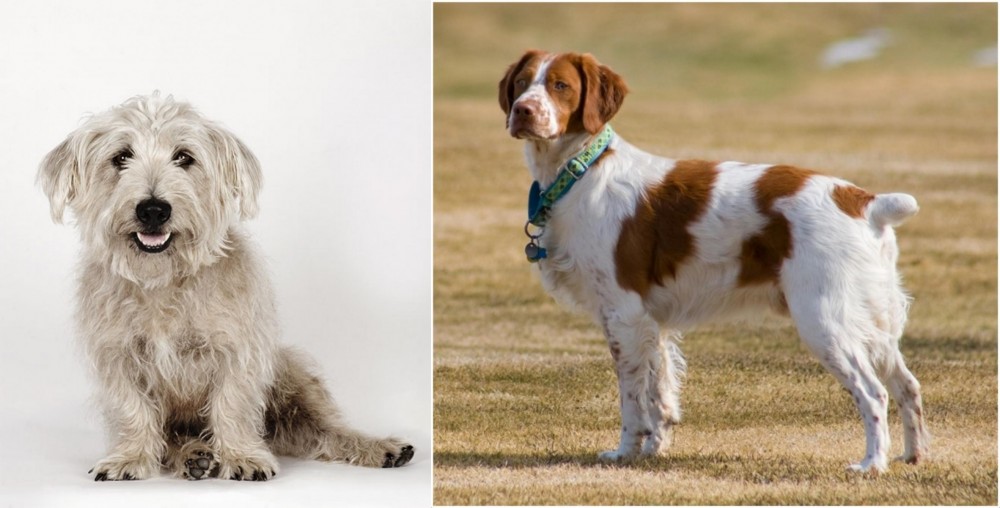 Glen of Imaal Terrier is originated from Ireland but French Brittany is originated from France. Glen of Imaal Terrier may grow 16 cm / 7 inches higher than French Brittany. Both Glen of Imaal Terrier and French Brittany are having almost same weight. Both Glen of Imaal Terrier and French Brittany has almost same life span. Glen of Imaal Terrier may have less litter size than French Brittany. Both Glen of Imaal Terrier and French Brittany requires Low Maintenance.
Glen of Imaal Terrier is originated from Ireland but French Brittany is originated from France. Glen of Imaal Terrier may grow 16 cm / 7 inches higher than French Brittany. Both Glen of Imaal Terrier and French Brittany are having almost same weight. Both Glen of Imaal Terrier and French Brittany has almost same life span. Glen of Imaal Terrier may have less litter size than French Brittany. Both Glen of Imaal Terrier and French Brittany requires Low Maintenance.
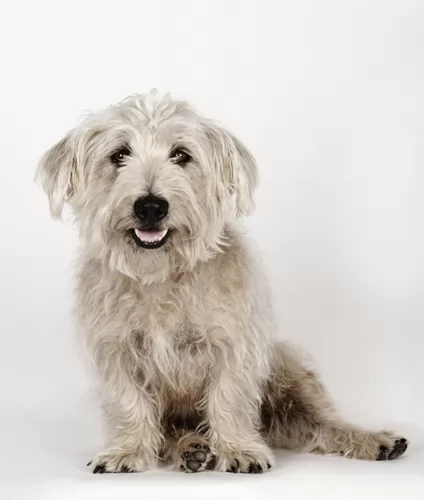 Hailing from Ireland and known also as the Wicklow Terrier or just Glen, the Glen of Imaal Terrier was used to get rid of rats, badgers and otters as well as being a good all-round farm dog.
Hailing from Ireland and known also as the Wicklow Terrier or just Glen, the Glen of Imaal Terrier was used to get rid of rats, badgers and otters as well as being a good all-round farm dog.
Using his strength, he was good at digging into burrows to root out badgers, but unlike other terriers, he wouldn’t go on and on yapping around his prey. He isn’t an excessive barker.
The terrier was recognised by the Irish Kennel Club in 1934 and later by the American Kennel Club in 2004. The Canadian Kennel Club recognized Glens in 2017.
 Brittanys are the product of France, actually developed in the Brittany Province. They are gun dogs designed to hunt birds. Referred to more often than not as a Spaniel their method of working is much more in line with the setters and pointers. They are believed to be developed somewhere between the 17th and 19th centuries, but not recognized until the 20th century. Orange and white dogs were portrayed on 17th century tapestries, hunting and retrieving. In 1850 the Reverend Davies wrote the first record of Brittanys that was verifiable.
Brittanys are the product of France, actually developed in the Brittany Province. They are gun dogs designed to hunt birds. Referred to more often than not as a Spaniel their method of working is much more in line with the setters and pointers. They are believed to be developed somewhere between the 17th and 19th centuries, but not recognized until the 20th century. Orange and white dogs were portrayed on 17th century tapestries, hunting and retrieving. In 1850 the Reverend Davies wrote the first record of Brittanys that was verifiable.
The Brittany was recognized for the first time in 1907 as their own breed even though they participated in the Paris Dog Show in 1900. Once recognized the standards were written as well. It was not until 1931 that the breed was recognized in America and 1934 before the American Kennel Club approved them. Until 1982 they were known as the French Brittany Spaniel. The Spaniel was dropped in ’82. In the United Kingdom the Brittany is known as an HPR (Hunt, Point and Retrieve) breed and they do so with both birds and small game such as hares. The Brittany’s have more dual champions than any other American Kennel Club Sporting Breed in both Confirmation and Field Trials.
There are some differences between the current day French Brittany and the “American Brittany”. They are the same breed but different sub-sets and there are differences that can be noted between the two. The French Brittany is smaller than the newer American version and works closer to the hunter and the guns, while the American Brittany runs ahead of the hunter quite often. Some breeders however don’t consider these differences to be sub-sets and believe that the American breeders should accept the French standards reflecting the origin of the breed.
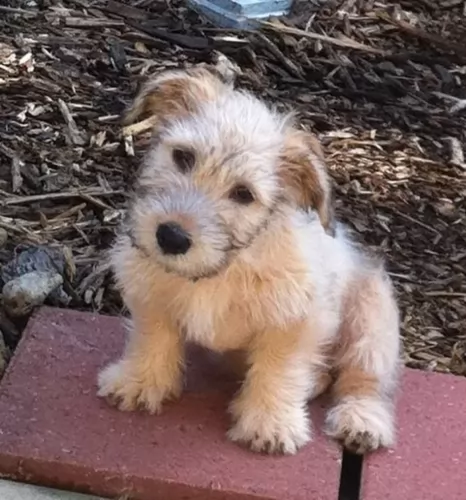 An interesting fact with the Glen of Imaal Terrier is that this is a dwarf breed, being a big sized dog on short legs, with the front feet turning out.
An interesting fact with the Glen of Imaal Terrier is that this is a dwarf breed, being a big sized dog on short legs, with the front feet turning out.
A typical Glen of Imaal Terrier stands at roughly 30 – 36cm and weighs up to about 16kg. Another interesting aspect with this dog is that it can take up to 4 years to reach maturity.
The head of this muscular dog is large, the ears are half erect, and while the tail has always been traditionally docked, it is often left long. The double coat of the dog is soft with the undercoat but he has a wiry outercoat. The color of the coat is essentially wheaten, tan or blue. The coat doesn’t shed much but some Glen owners strip excess hair a few times during the years.
Glen of Imaal terriers are energetic, easygoing and they make splendid pets for any family. He is more than happy to give up lying around for games and activity just to lie at his owner’s feet. He is an intelligent dog too and even though he is somewhat stubborn, he responds well to training and socialization. In fact training and socialization is important for every dog breed to prevent negative behavior and to ensure your pet is obedient.
 The French Brittany is an energetic, compact, solid, athletic dog. They have average size heads, intelligent expressions, floppy ears, and a long, elastic and free gait. Most Brittanys are born with short tails but if not, they are docked outside the United Kingdom. Docking is illegal in the United Kingdom so those Brittanys might have a long tail.
The French Brittany is an energetic, compact, solid, athletic dog. They have average size heads, intelligent expressions, floppy ears, and a long, elastic and free gait. Most Brittanys are born with short tails but if not, they are docked outside the United Kingdom. Docking is illegal in the United Kingdom so those Brittanys might have a long tail.
Their coats are orange roan, orange and white and liver roan. A tricoat of orange, liver and white is allowed within a specific placement of the three colors.
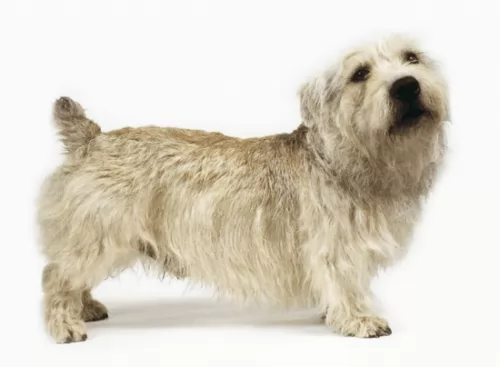 The Glen of Ismaal Terrier is more docile than other terrier breeds, but that doesn’t mean he isn’t feisty. He loves to play and is an adventurous dog, always on the lookout for exciting opportunities and to chase prey.
The Glen of Ismaal Terrier is more docile than other terrier breeds, but that doesn’t mean he isn’t feisty. He loves to play and is an adventurous dog, always on the lookout for exciting opportunities and to chase prey.
He is a good natured pet and he gets on well with adults, children and pets in the home. He can adapt well to life in the city or in the countryside so long as he is with his family members.
He isn’t a couch potato dog though, and wherever he lives, he will need a good amount of exercising. Treat him with the love and respect he craves, and you’ll have a wonderful canine companion.
Dual champions in Field Trials and Confirmation. They both point and retrieve.
They are not as adaptable as some hunting breeds. They are very active and need space both indoors and out. They are not recommended for life in apartments in the city. A rural environment is best. They do not adapt well to the damp and cold weather.
They are very intelligent and have very high learning ability.
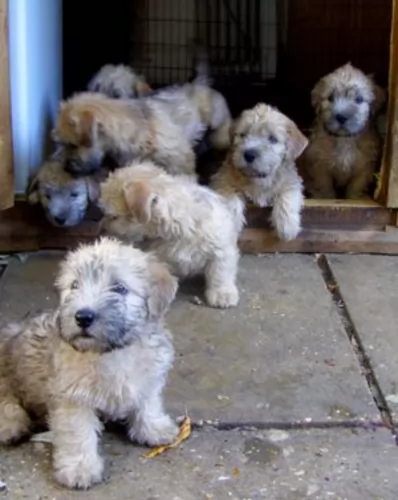 The Glen of Imaal Terrier is a feisty, healthy breed, particularly when he gets the best food there is, then he is not likely to get ill easily.
The Glen of Imaal Terrier is a feisty, healthy breed, particularly when he gets the best food there is, then he is not likely to get ill easily.
However, just like other dogs, he can be prone to certain health conditions such as hip dysplasia. When a dog is diagnosed with hip dysplasia, the socket part of the joint is poorly developed, so that is causes abnormal friction.
Inflammation and pain can be the result and your dog can become lame. Unfortunately, rapid weight gain with puppies can put more stress on the hips, and diets without the right balance of vitamins and minerals can be bad for good bone development.
 Generally, a hardy breed that is mostly healthy, the Brittany in France usually lives on average 12 years 6 months. In the UK the average if 12 years and 11 months and many dogs living to be 14 or 15. Some of the health issues that might pop up for the Brittany include:
Generally, a hardy breed that is mostly healthy, the Brittany in France usually lives on average 12 years 6 months. In the UK the average if 12 years and 11 months and many dogs living to be 14 or 15. Some of the health issues that might pop up for the Brittany include:
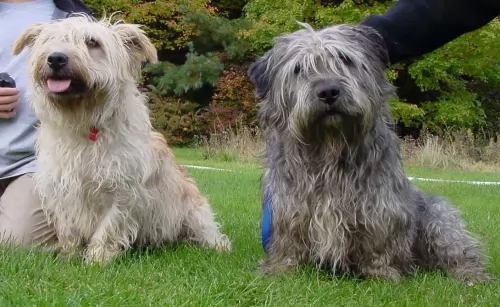 Caring for a Glen of Imaal isn’t going to be a huge job. This is what makes him such a wonderful pet as he is a straightforward pet, requiring little more than a brush to avoid the hair matting.
Caring for a Glen of Imaal isn’t going to be a huge job. This is what makes him such a wonderful pet as he is a straightforward pet, requiring little more than a brush to avoid the hair matting.
Check his ears, teeth and nails from time to time to ensure he is always in tip top condition.
If you intend making use of the convenience of commercially manufactured dog foods, the top quality one will provide you with balanced nutrition for your Glen and you can mix in some cooked brown rice, vegetables and chicken from time to time.
The Glen of Imaal Terrier is a small-breed dog and, he should be offered dog food that has been specially formulated for small, energetic dog breeds. You can also add in a little bit of raw meat into his kibble as a treat as this is important for keeping him free of skin allergies.
Make sure he always has a bowl of fresh, cool drinking water.
 Feed puppies a high quality puppy food designed for medium sized dogs. Give about one to one and a half cups per day in 2-3 meals.
Feed puppies a high quality puppy food designed for medium sized dogs. Give about one to one and a half cups per day in 2-3 meals.
For the adult French Brittany feed a high quality adult dry food designed for medium sized dogs. Give about two cups per day in 2 meals.
Excellent vision and scent
The French Brittany is an active and enthusiastic bird dog that loves to exercise. They have the stamina and drive that goes with an efficient and successful hunting dog. They need daily exercise, regular walks and excel at field trials and confirmation. They are also good at lure chase, flyball, rally and obedience.